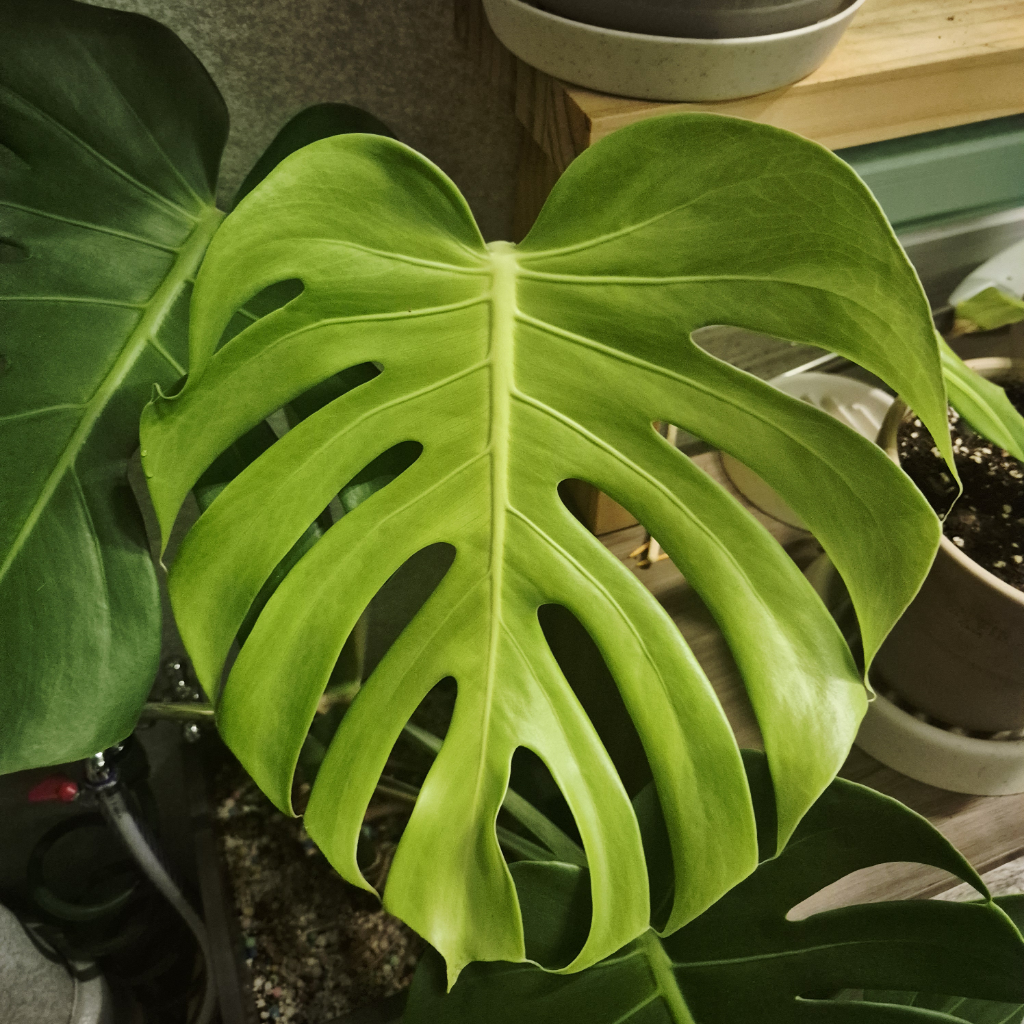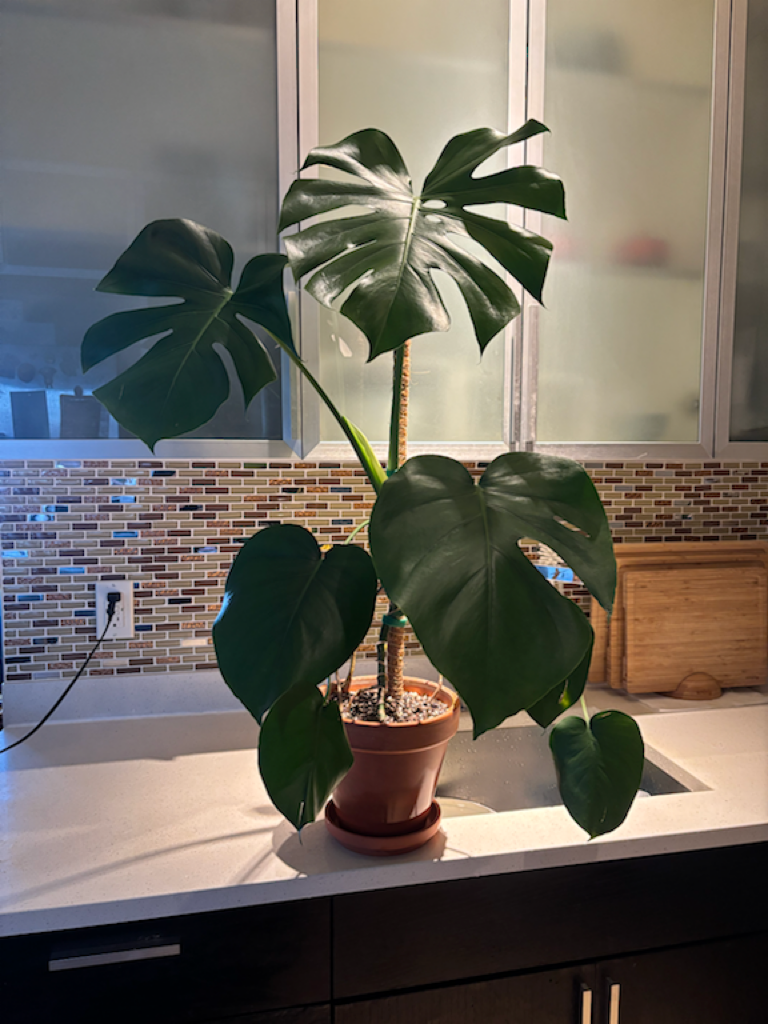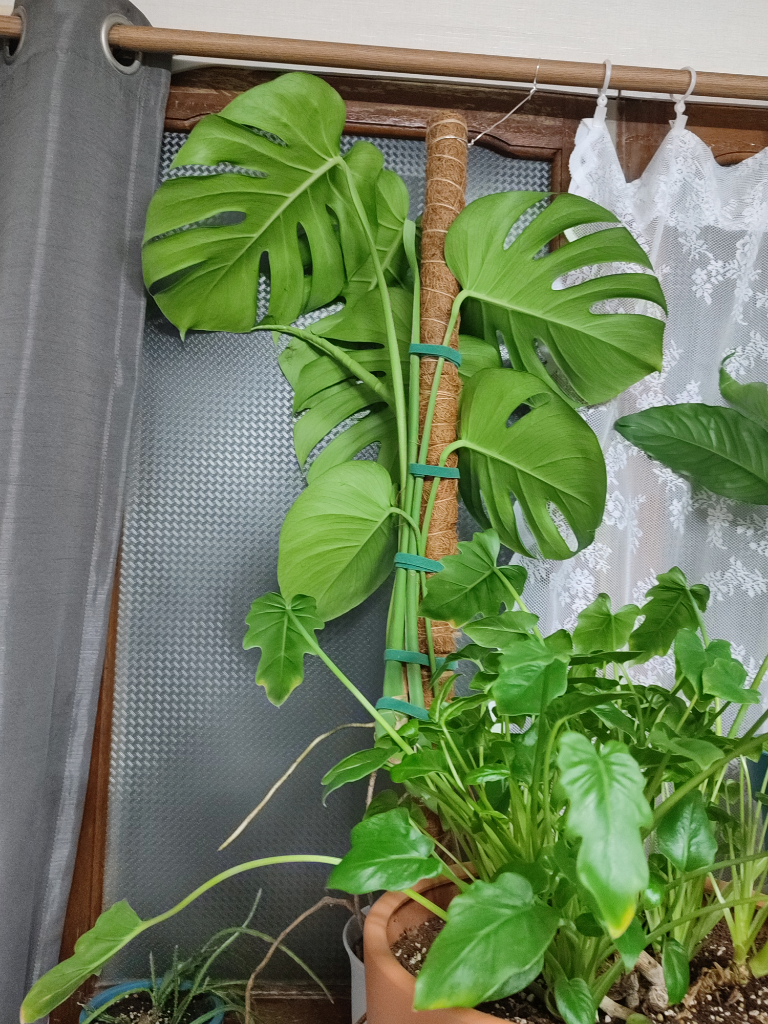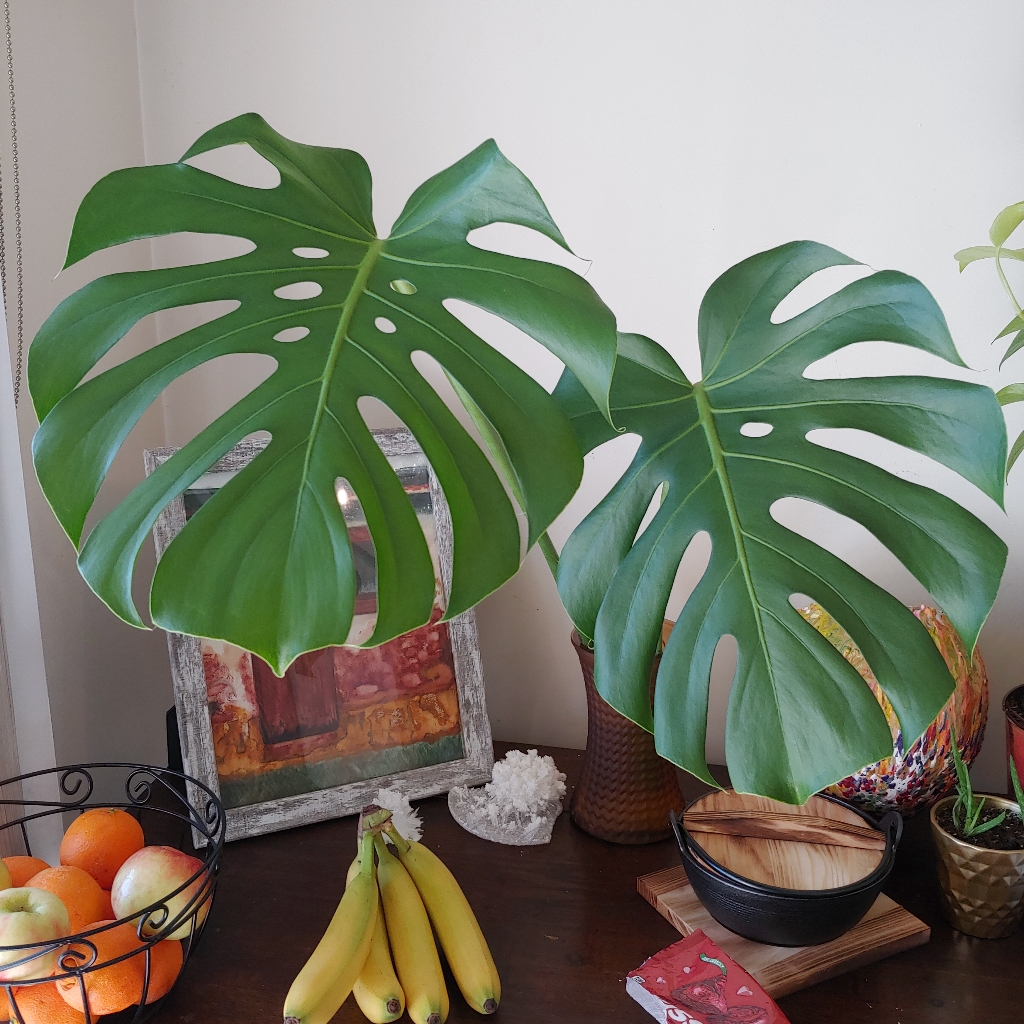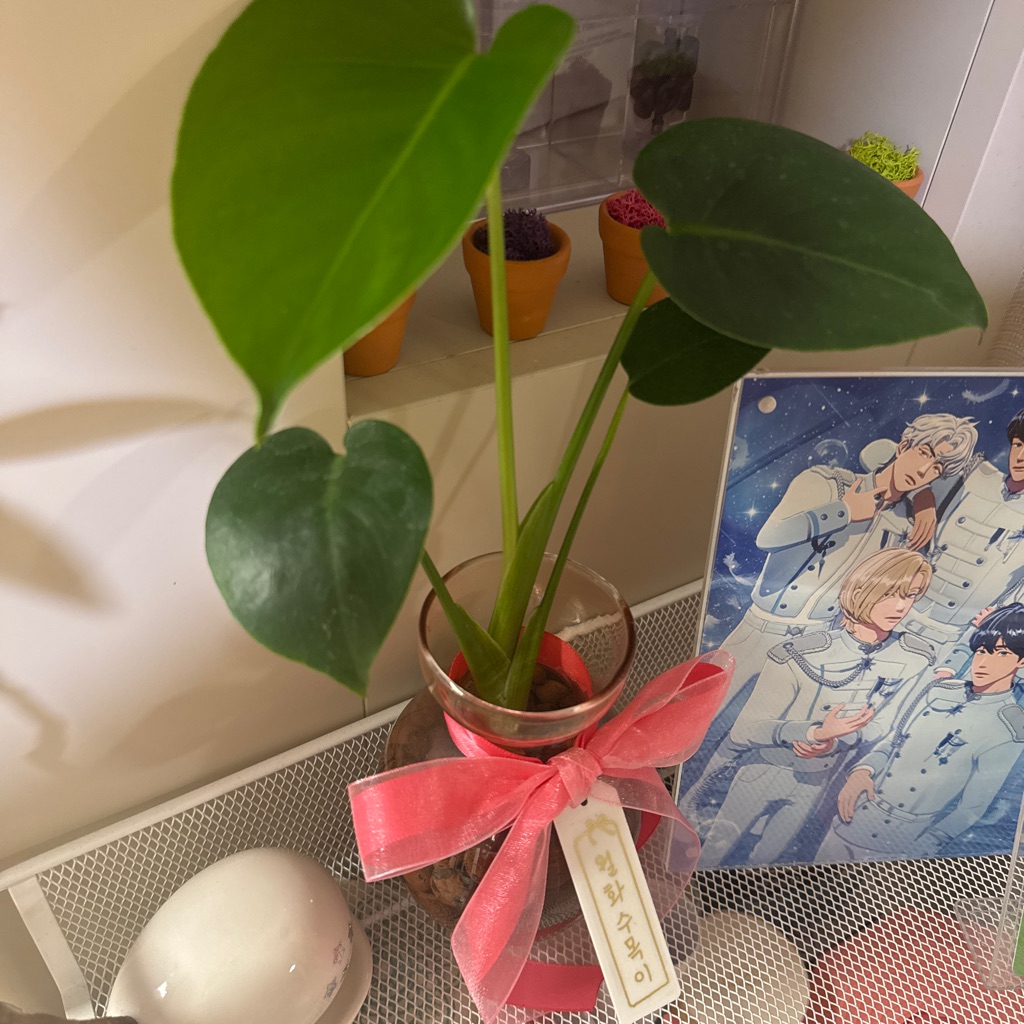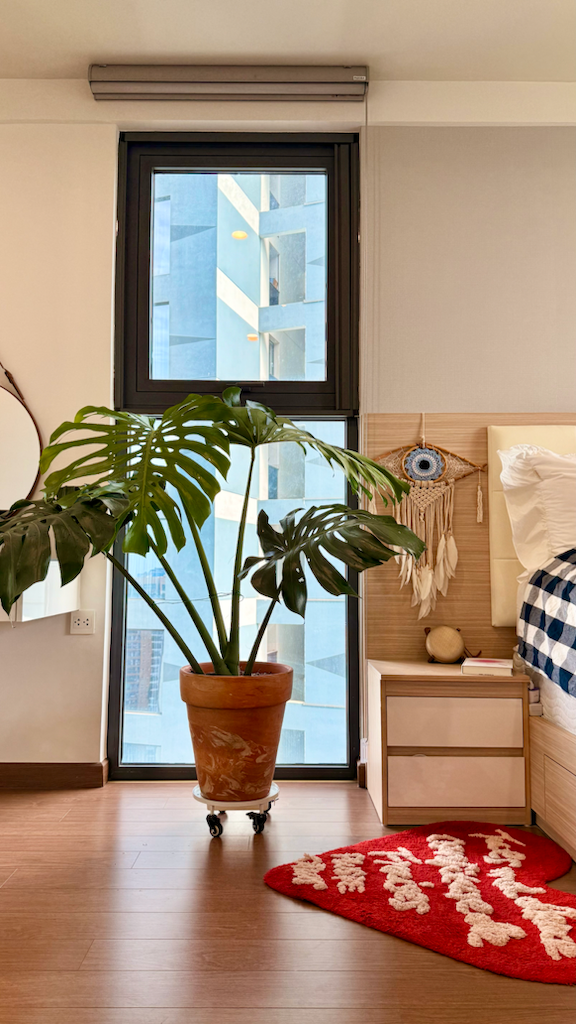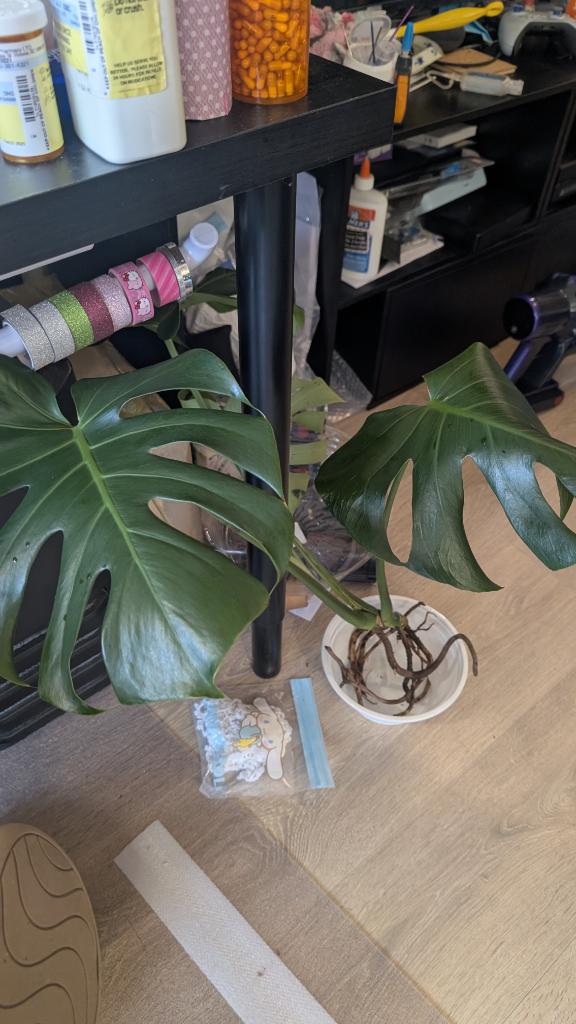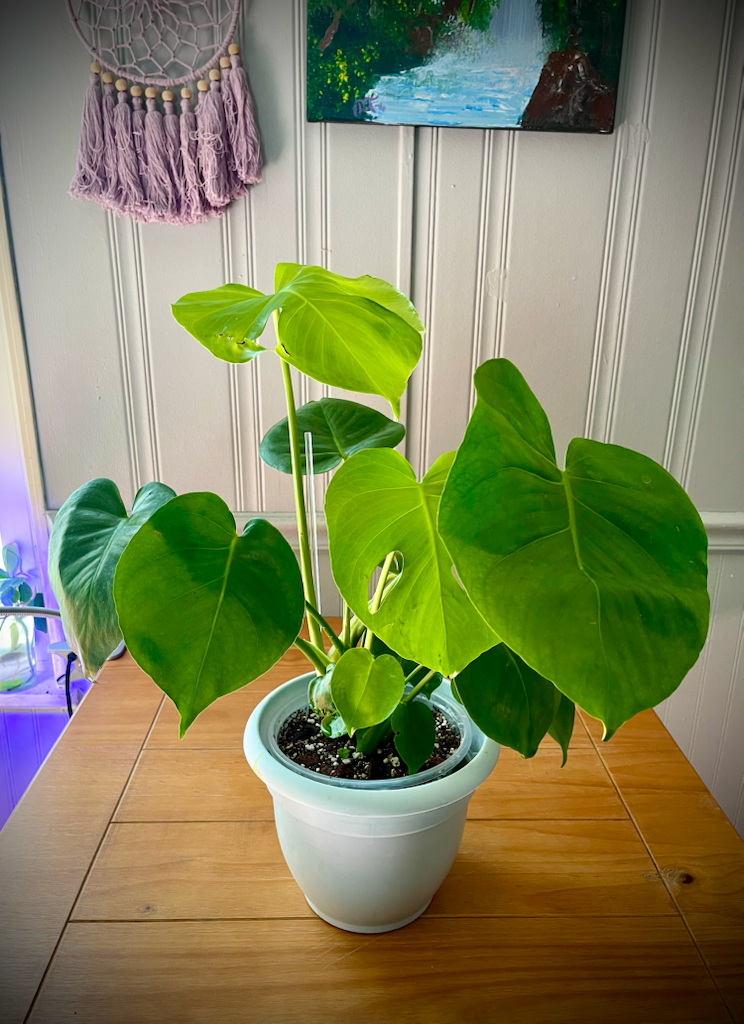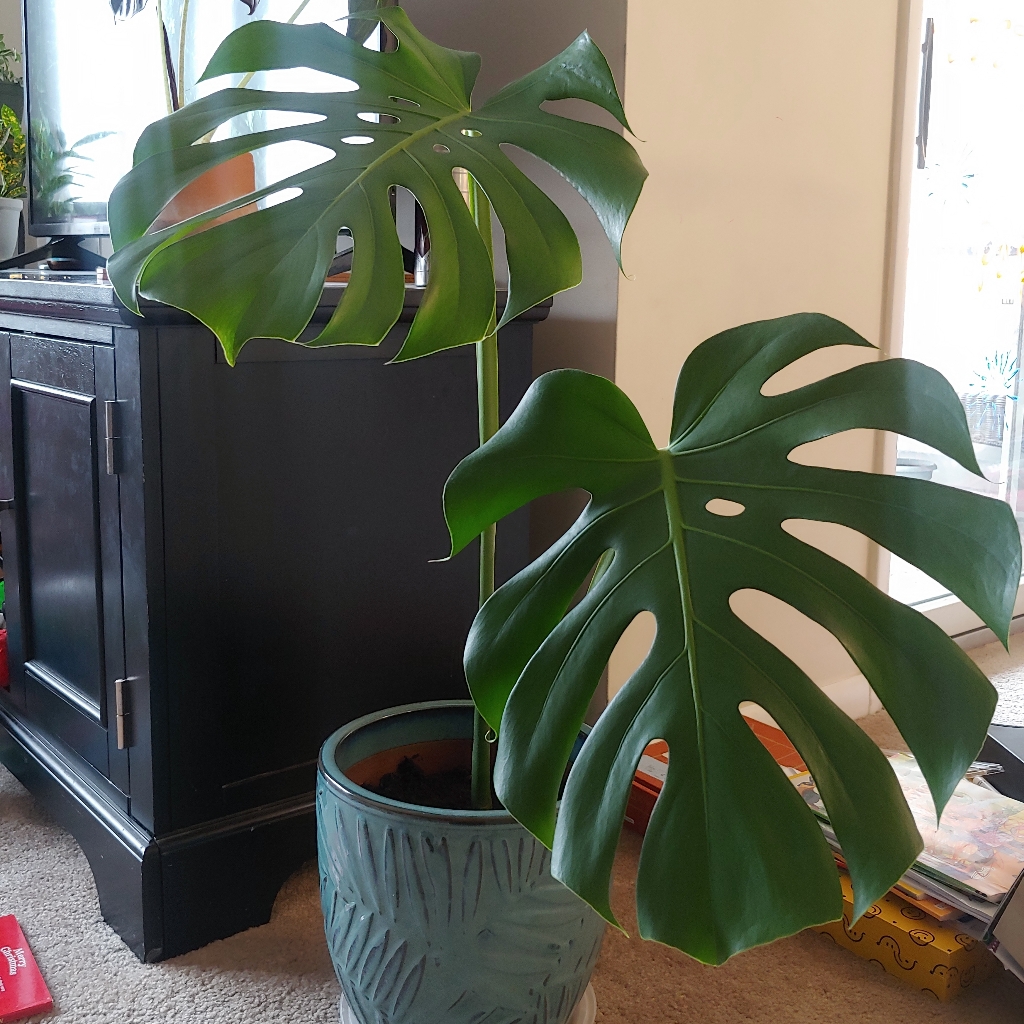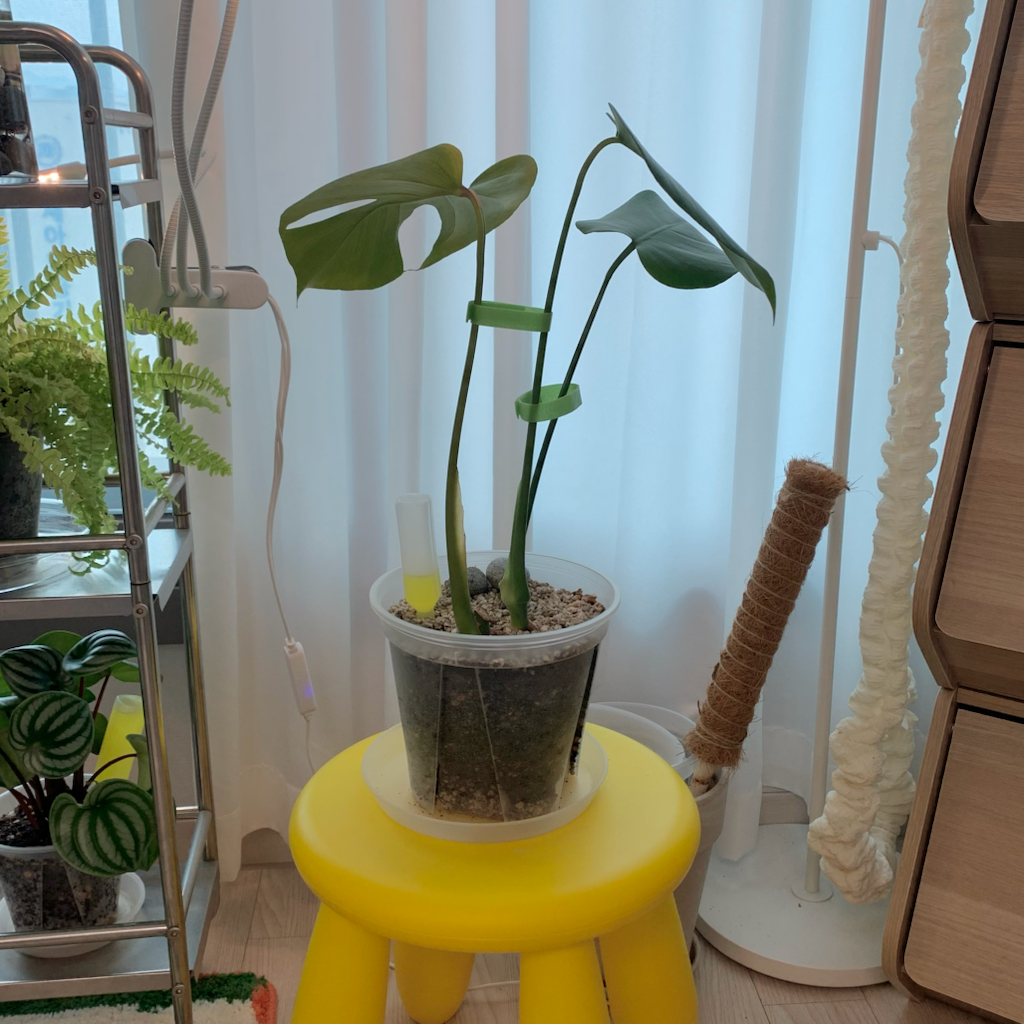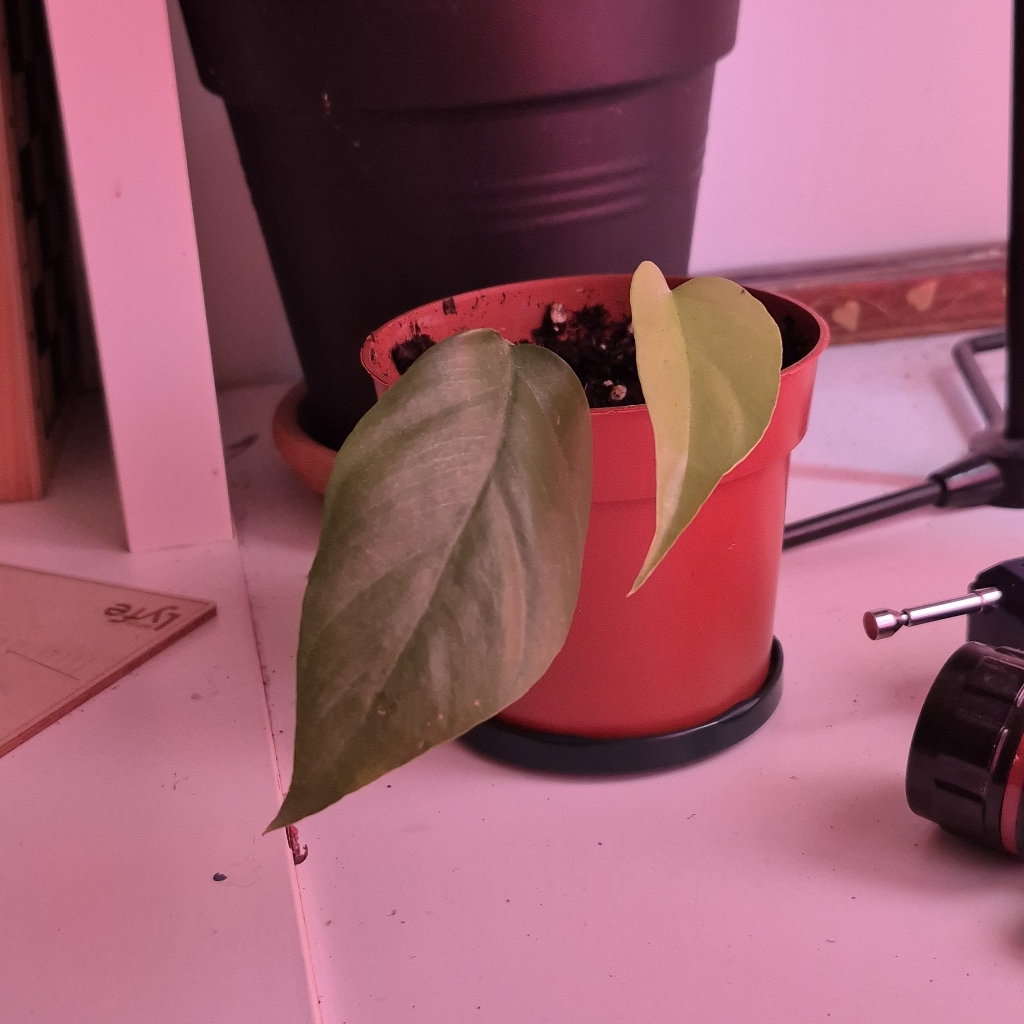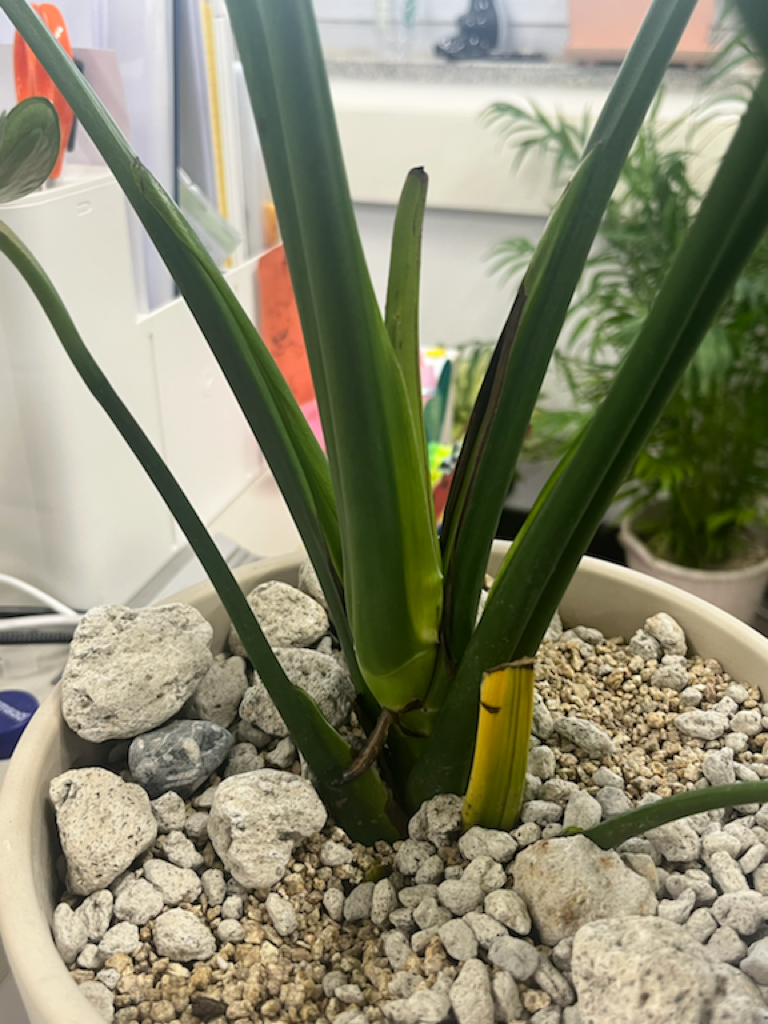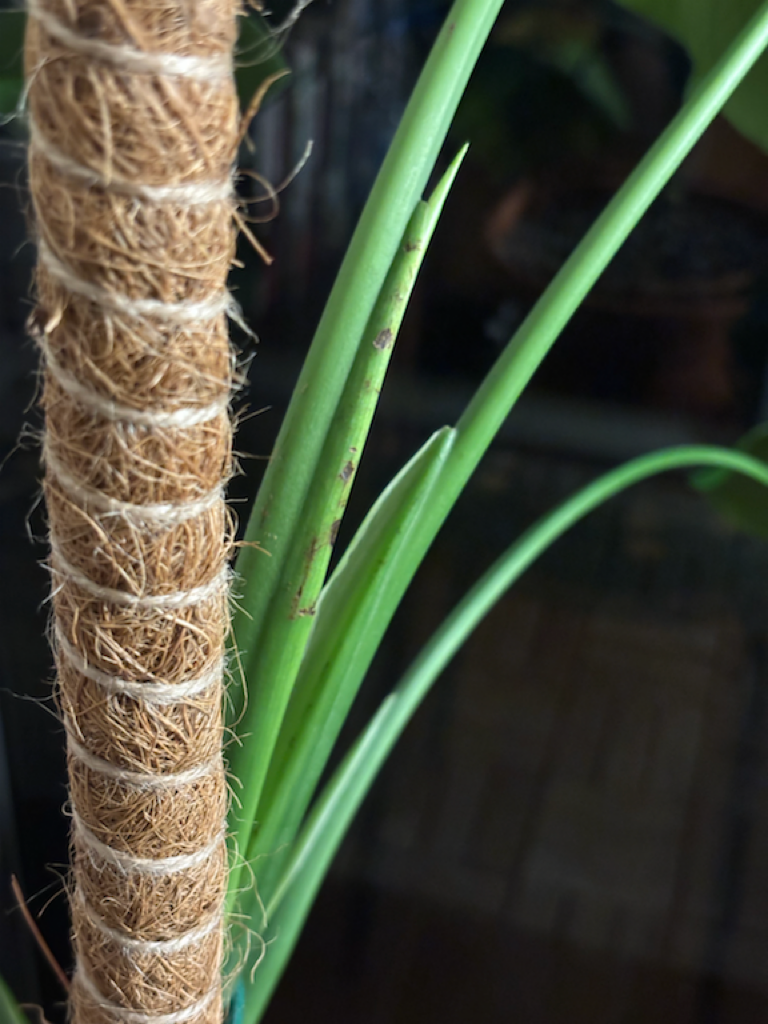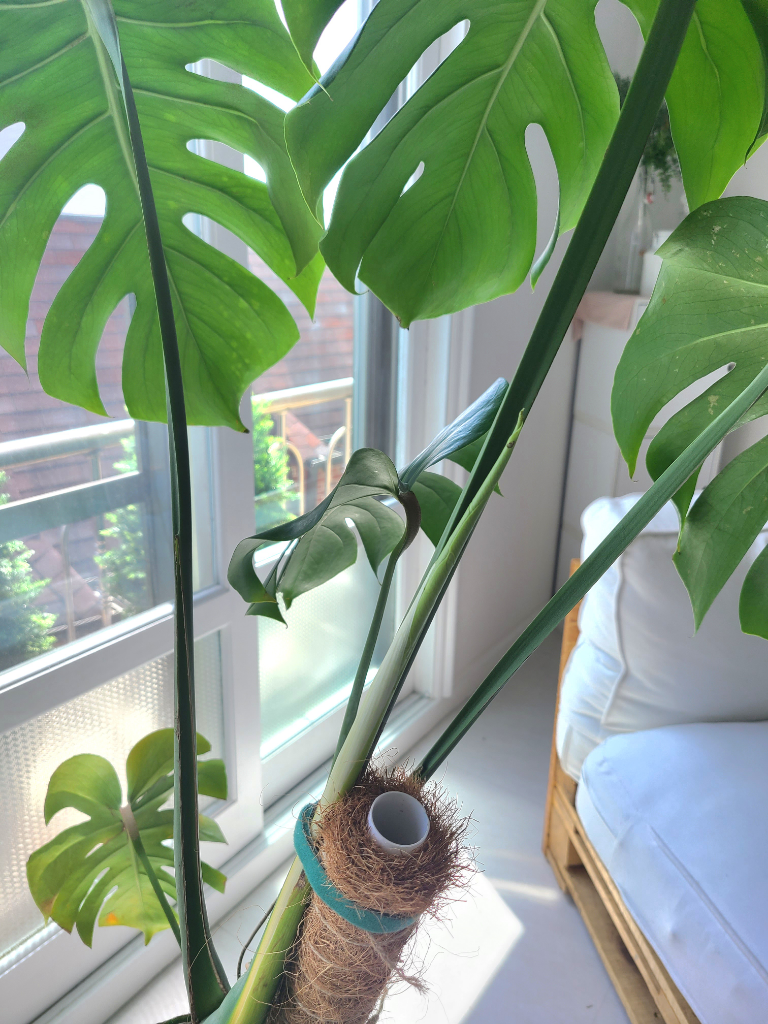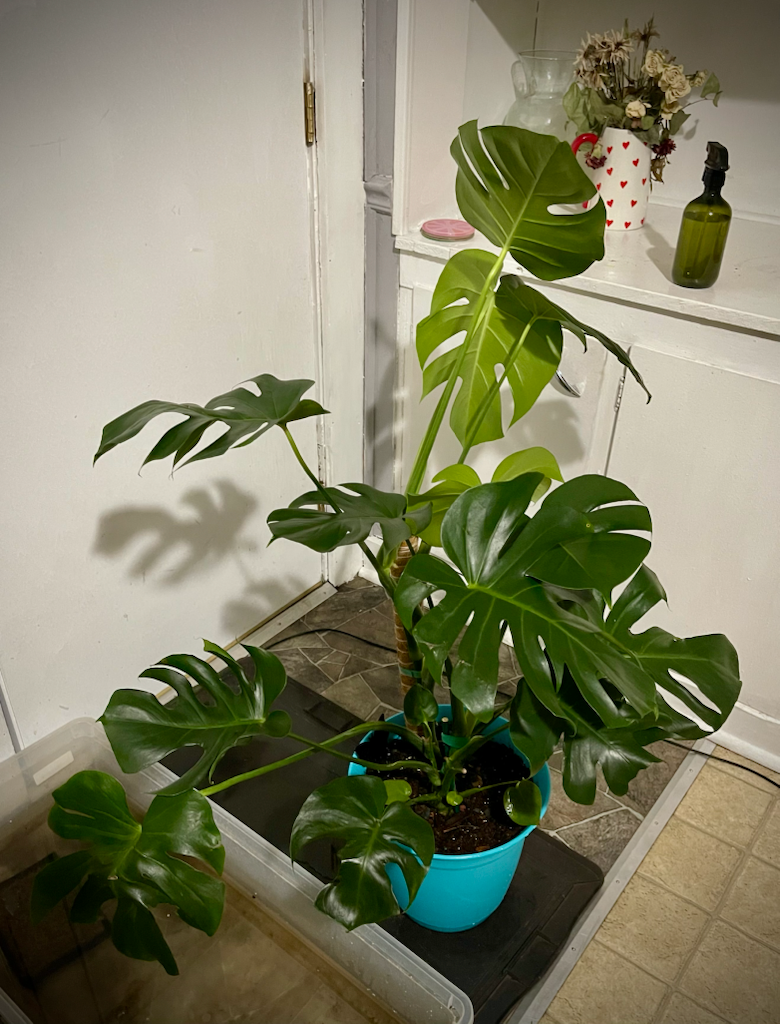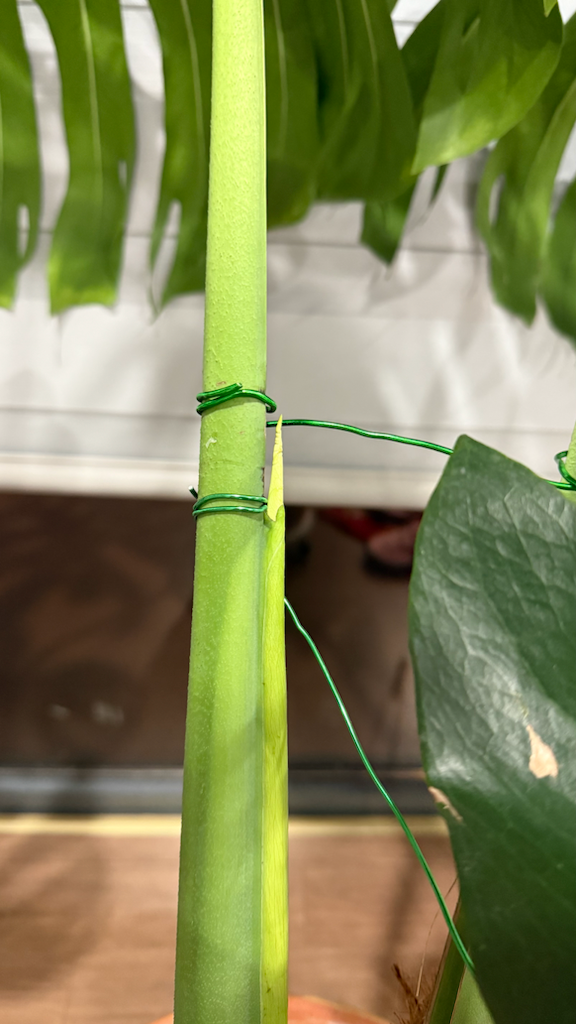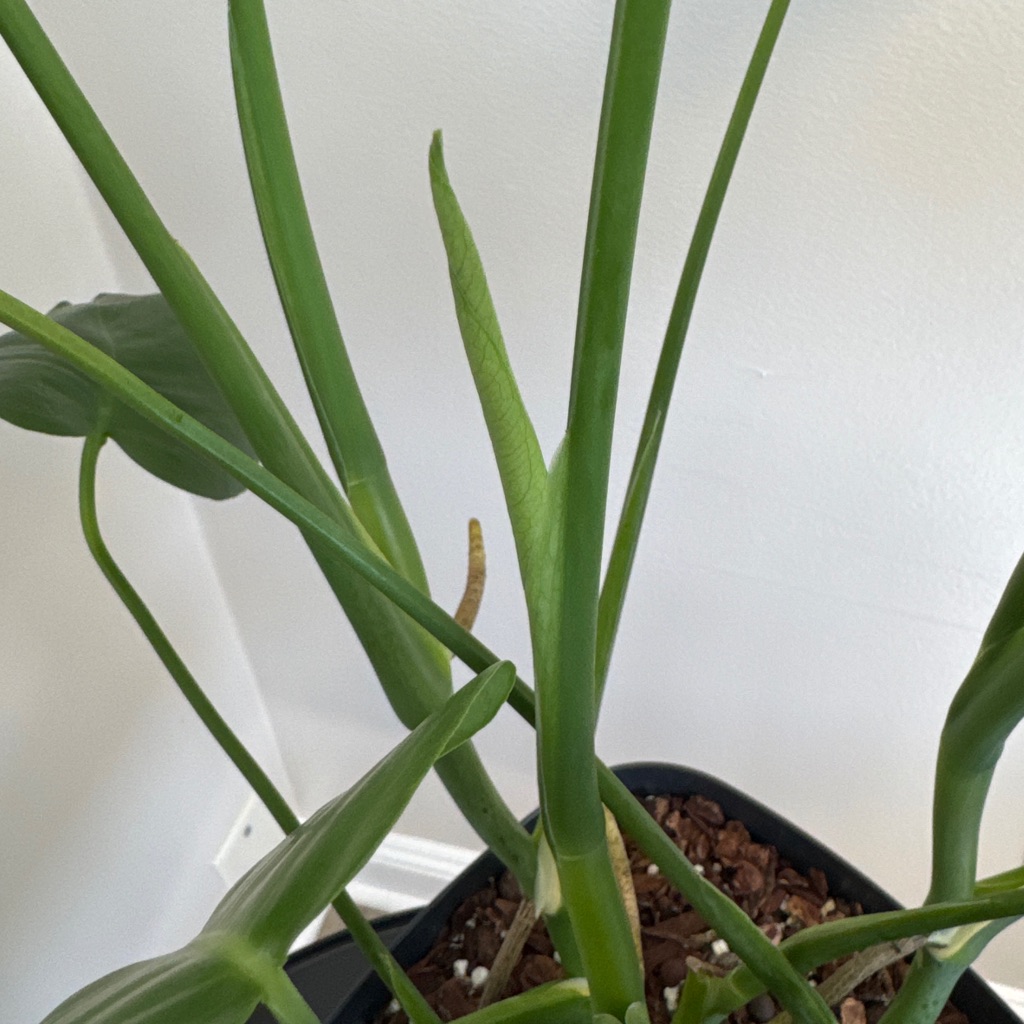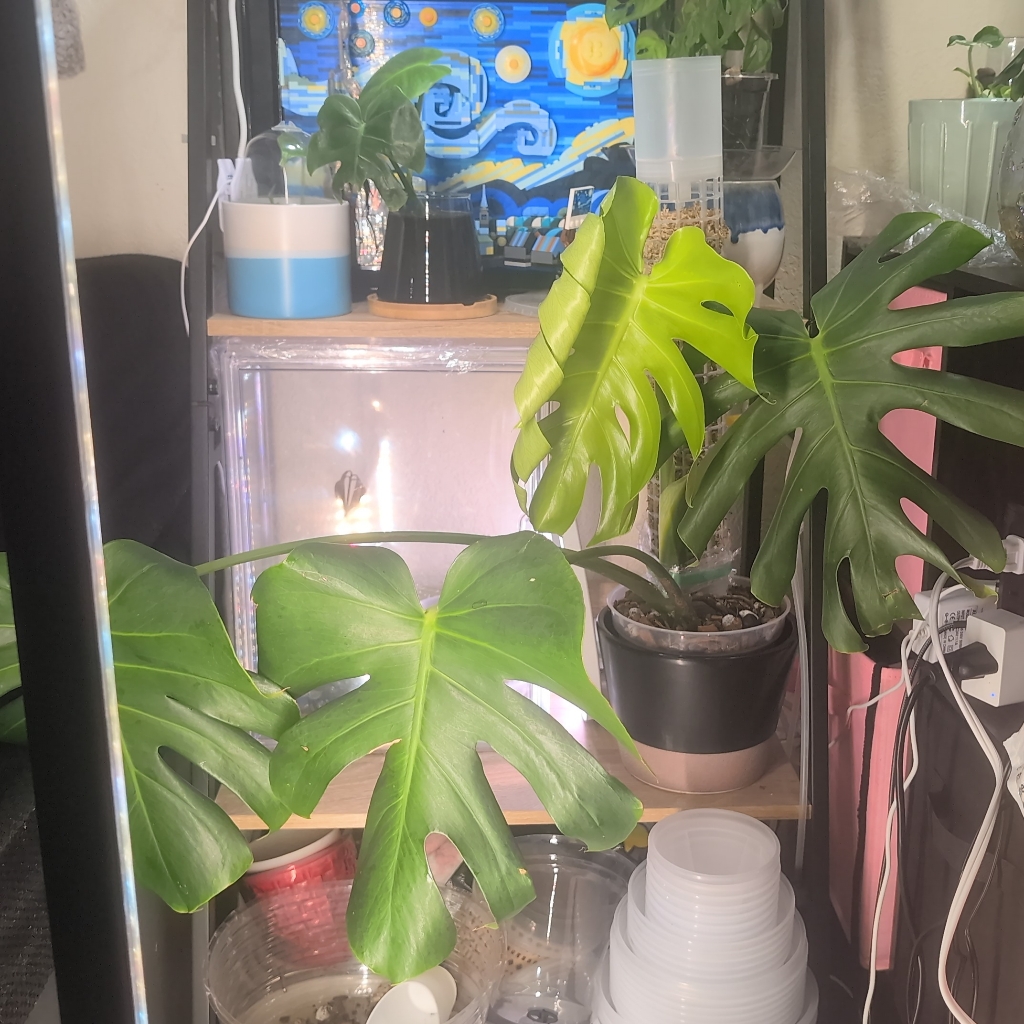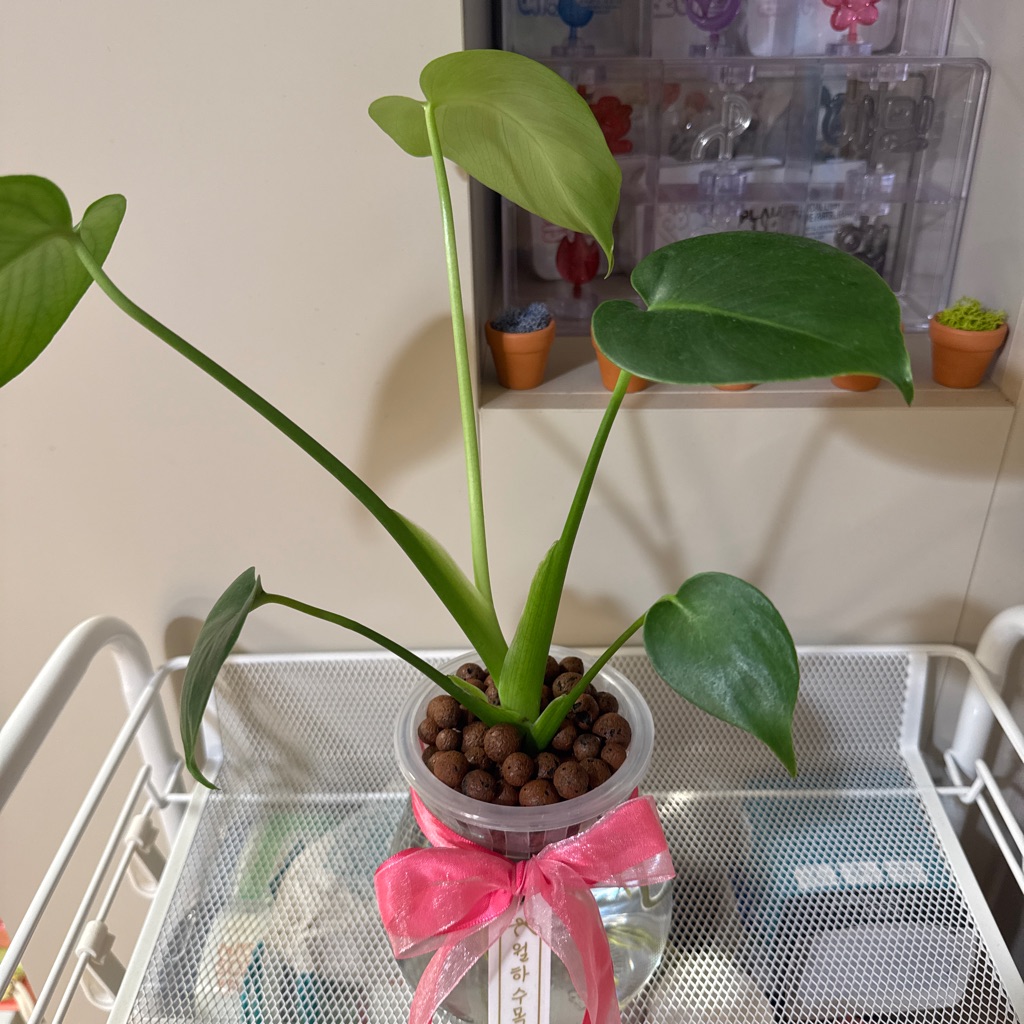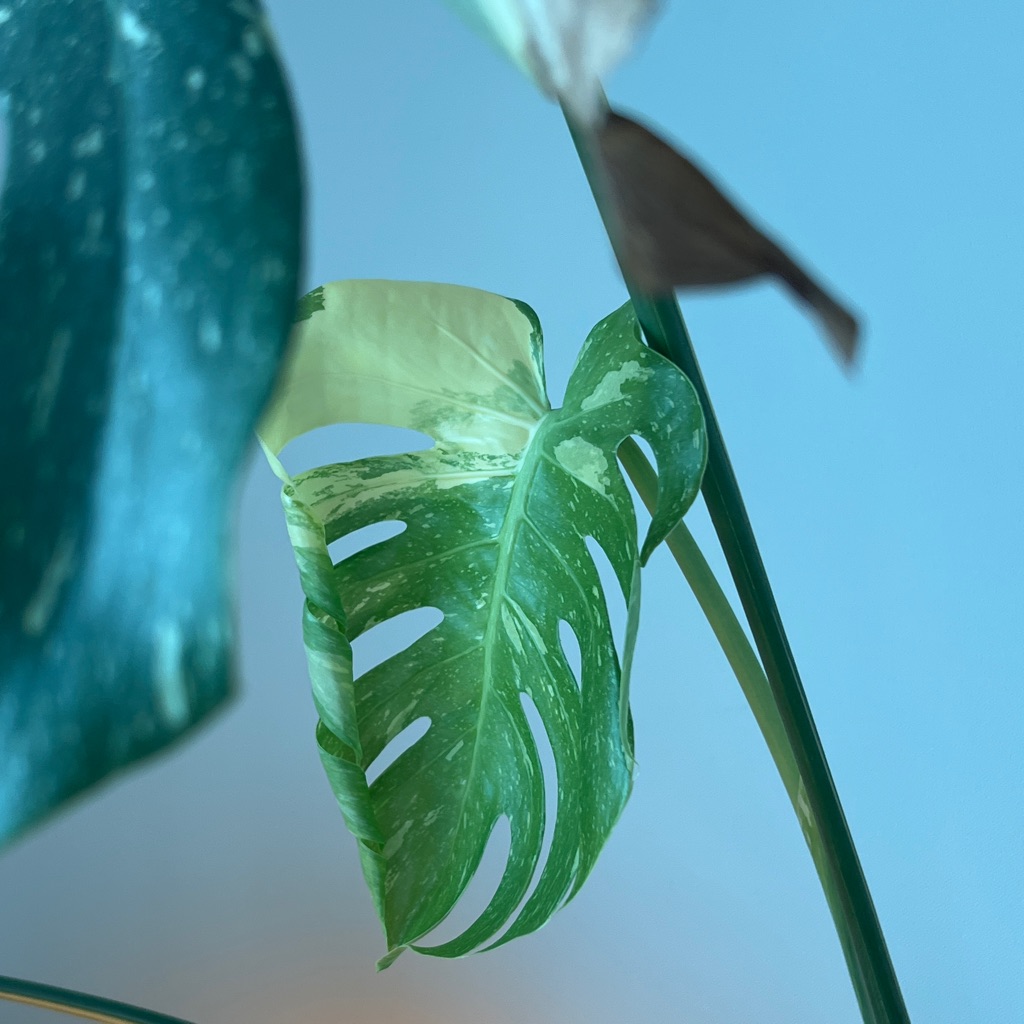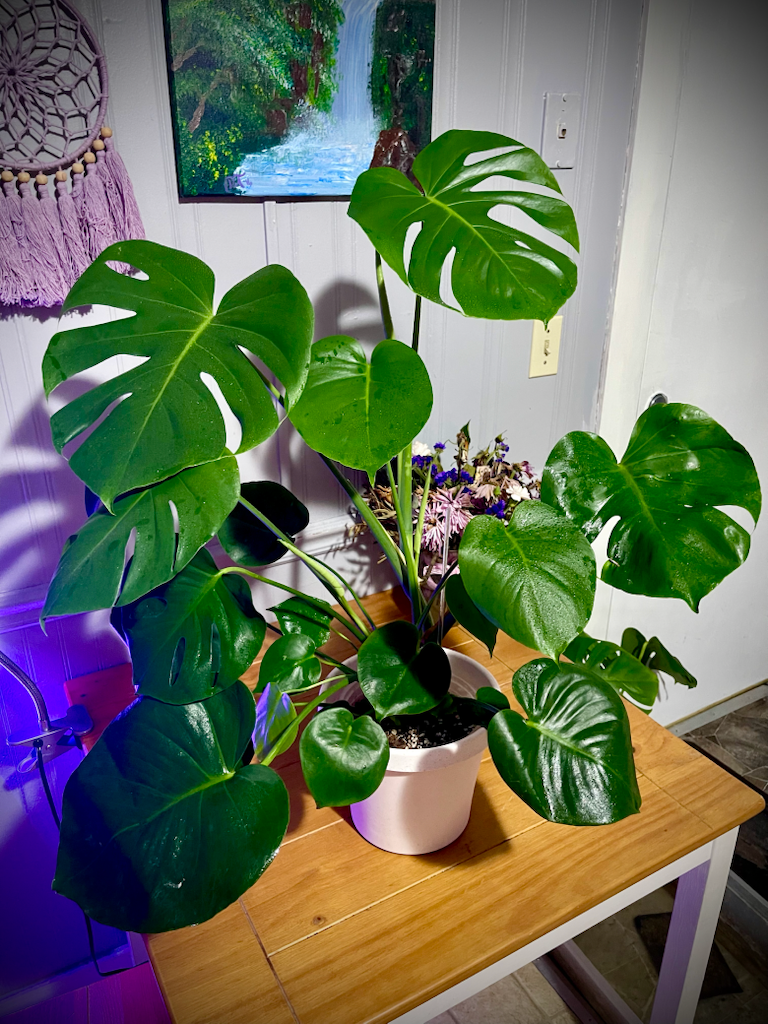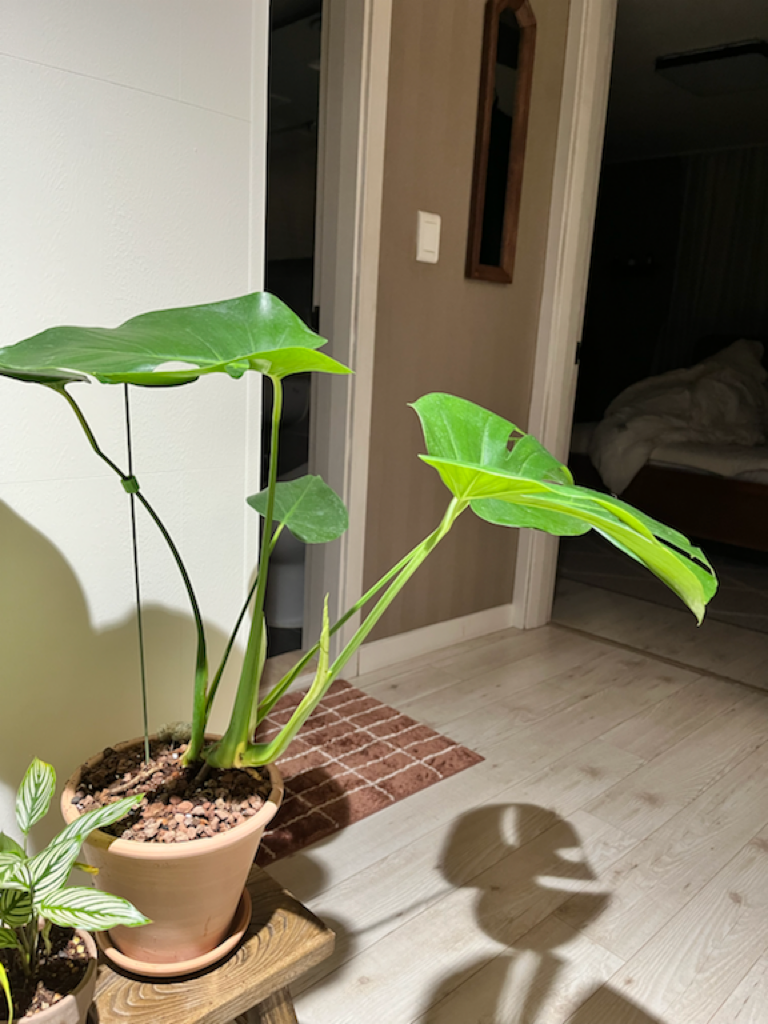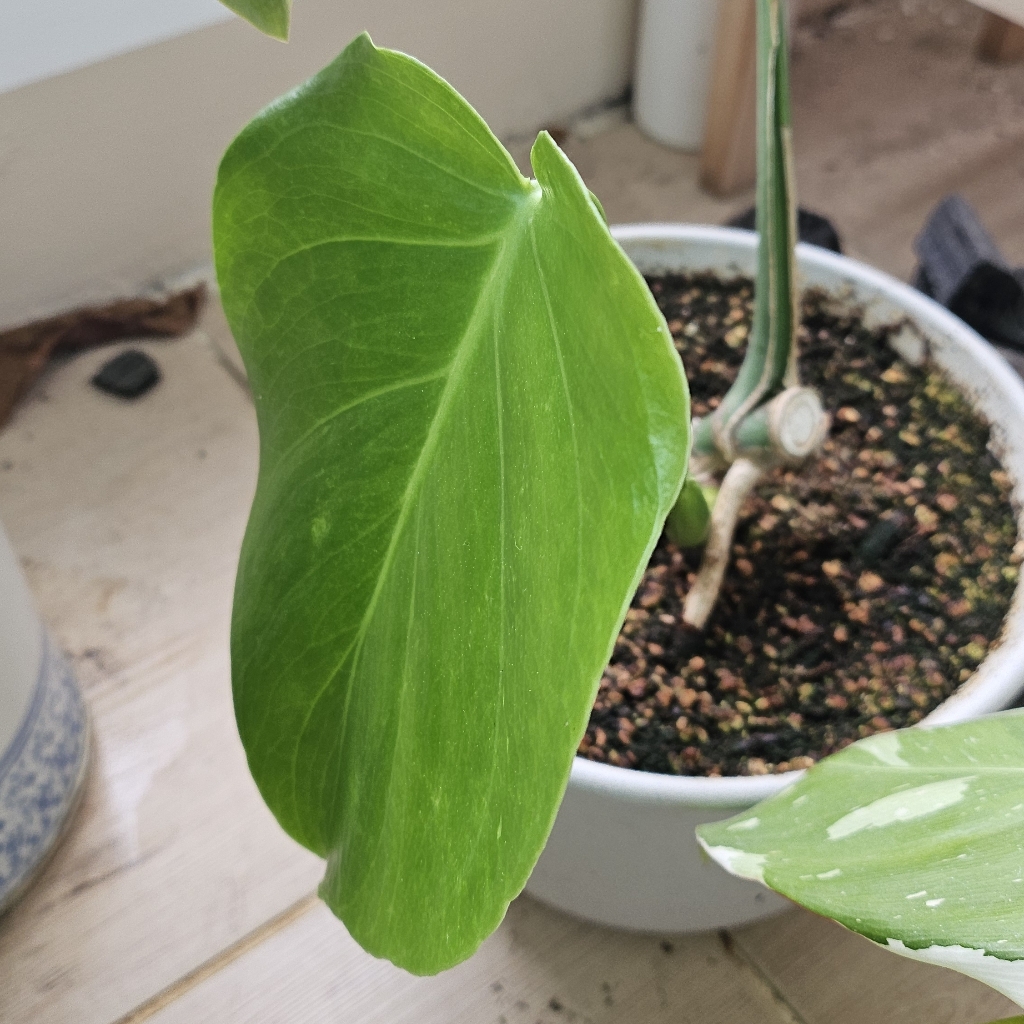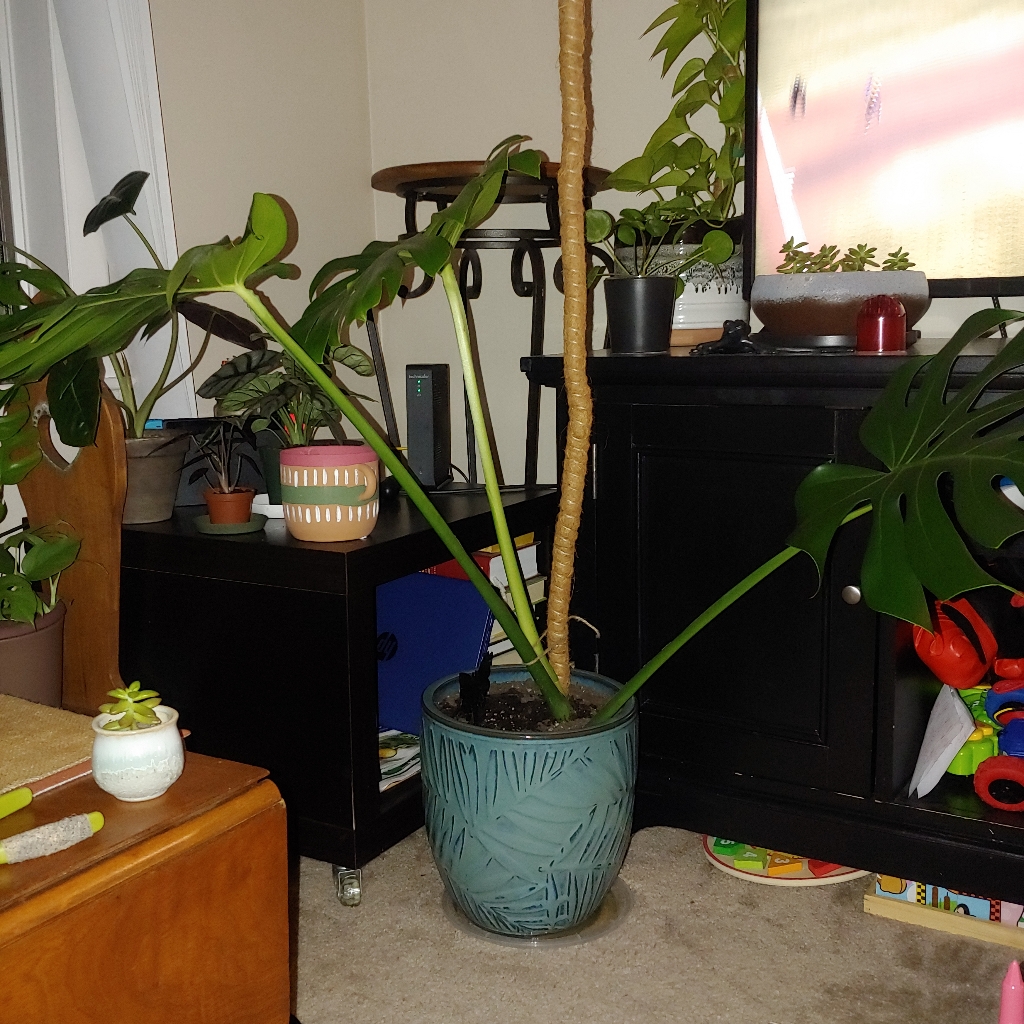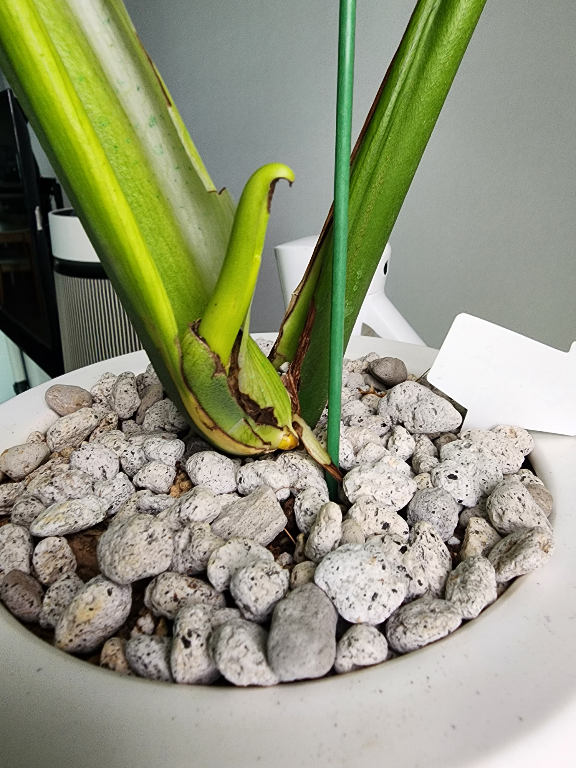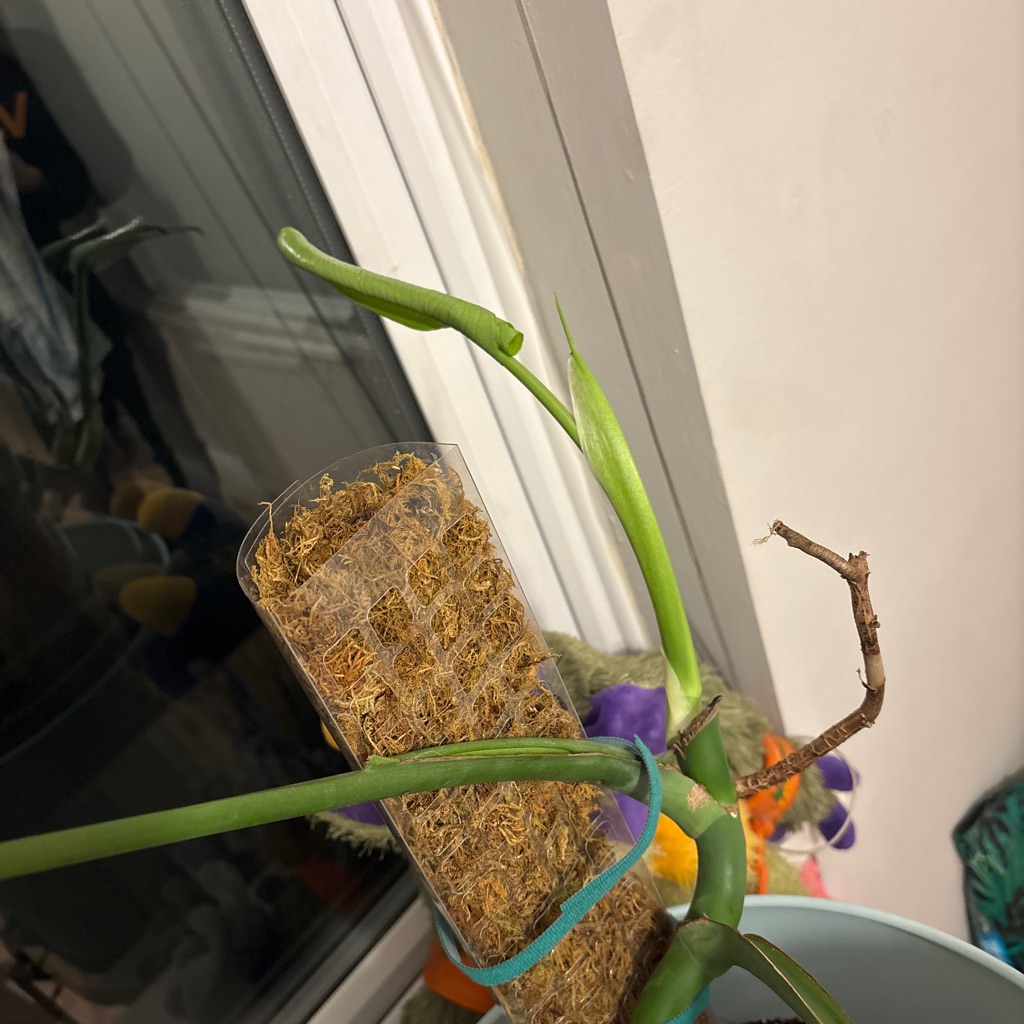How to grow and care for Monstera deliciosa
plant care guide about watering, fertilizing, trimming, repotting, cutting, propagating Monstera deliciosa
Monstera deliciosa 101 - Plant Care Instructions
Bright indirect light
16C° ~24C°
Every 7 days
Growth Observation wiki
💬 Gardener's know-how
Botany Encyclopedia
Genus : Monstera
🔖 Care Tips
This plant is known for its split leaves. Initially, small leaves appear, and once there are more than 4-5 young leaves, split leaves start to form. The larger the leaves grow, the more they tend to split. When split leaves appear, older leaves may turn yellow and fall off. Thicker stems produce larger leaves, so consider this when selecting a plant. Leaves with patterns have irregular patterns and can be sensitive to environmental changes, making them difficult to care for. If water stays on the patterned areas for too long, the leaves can easily rot. Wipe them with a dry cloth or ensure good air circulation if they get wet. Guttation is a natural phenomenon common in tropical plants, where moisture is released from the leaves, usually at night. This can indicate that the plant has excess moisture, so adjust your watering accordingly.
🏝️ Habitat Conditions
This plant grows in the tropical rainforests of Central America. It thrives in warm and humid environments.
🪨 Soil Mix
When planting, it's best to use well-draining soil. Generally, mix 40% potting soil, 20% bark, 20% leaf mold, 10% perlite, and 10% charcoal. However, you can adjust the ratios based on the situation and environment.
🌡️ Environment
This plant thrives at 20-25°C, with a minimum temperature of 13°C. Maintain humidity at 50-80% and keep the soil moist. Ensure good air circulation to prevent mold and pests.
👀 Characteristics details
Install a support to prevent the stems of the climbing plant from bending or breaking. Aerial roots may emerge from the stems; you can remove them with sterilized tools if you find them unsightly, but it's better to leave them. When aerial roots touch the ground or water, they can form fine roots to absorb moisture and nutrients, and they also help support the plant if it leans. Since the leaves are broad and can accumulate dust, wiping them regularly will aid in photosynthesis.
☀️ Light
Avoid direct sunlight and provide prolonged indirect light. Variegated plants like Albo Monstera struggle with photosynthesis, so they need more light. However, strong light can damage the variegated leaves, so expose them to gentle light for extended periods.
💧 Water
When the surface soil is dry, water the plant thoroughly.
🌱 Propagate
To propagate houseplants, separate the growth points along with leaves and aerial roots for cuttings. 1. For water propagation, avoid using a transparent container. Place the stem in water, and once roots appear, add hydroponic fertilizer. When roots are 5-7 cm long, transfer to soil. 2. For soil propagation, plant the cutting deeply in soil without fertilizer. After propagation, avoid exposing the cuttings to bright light. Gradually increase light exposure to help them adapt to gentle light. Maintain high humidity and keep the temperature between 20-25°C.
🪴 Repot
Repot in spring every 1-2 years due to its relatively fast growth rate.
💊 Fertilize
During the growing season from spring to summer, using fertilizer according to the recommended amount can promote more vigorous growth. It is best to avoid fertilizing immediately after repotting and wait 2-4 weeks before applying fertilizer.
🌺 Flower
When grown indoors, it rarely blooms. It flowers from spring to summer, producing white blooms. To enhance leaf size or health, remove the flower stalk before blooming to direct nutrients to the leaves instead of the flowers.
😵 Toxicity
Be cautious with pets and young children as it is toxic.
water
How to water Monstera deliciosa
💬 Gardener's know-how
How often should I water?
check Monstera deliciosa Every 7 days if it needs water when it’s very cold (below 5℃), water less frequently
When do I need to water?
the top 2-3 inches of soil is dry
Light & Location
How much light does a Monstera deliciosa need?

Bright indirect light
Grow light
Light preference
Monstera deliciosa likes Bright indirect light, Grow light day. The brighter the space, the better this plant grows.
Check if there’s an optimal place in your house!
This plant prefers
2K ~ 10K lux to thrive!
0
20K~
2K
10K
Temperature
Houseplants
-15
16~24℃
45
Plants that grow in the wild and those that grow indoors prefer different temperatures. If you grow Monstera deliciosa at home, make sure the temperature is 16~24℃.
Humidity
Ideal humidity
0
40~70%
100
Monstera deliciosa prefers humidity about 40~70%. If necessary, increase humidity by misting, humidifier.
Fertilize
💬 Gardener's know-how
Collective Knowhow
When should I fertilize?
Only when your plant is healthy
How frequently should I fertilize?
1-2 times in growing season. A pinch for a small pot.
Soil Mix
💬 Gardener's know-how
Characteristic
The taxonomic classification of Monstera deliciosa is as follows. - Kingdom: Plantae, Phylum: Tracheophyta, Class: Liliopsida, Order: Alismatales, Family: Araceae, Genus: Monstera, Species: Monstera deliciosa
| Taxonomy Name | Taxonomy Value |
|---|---|
| Phylum | Tracheophyta |
| Class | Liliopsida |
| Order | Alismatales |
| Family | Araceae |
| Genus | Monstera |
| Species | Monstera deliciosa |
Is your plant sick?
Track what happened. We’ll let you know the cause and treatment shortly!





1:1 Expert Help
You’ll get professional feedback within 24 hours from an expert on our team.
feedback will include

